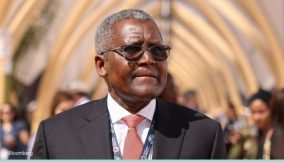The Federal Government of Nigeria has appealed to Labour Unions to resume negotiations on the new minimum wage after a nationwide strike that has disrupted various sectors in the country.
The appeal was made in a public statement released Monday by the federal government of Nigeria through the Ministry of Information and National Orientation following the indefinite strike action.
In his statement, Mohammed Idris, the minister, stressed the government’s interest in a “measured and realistic” approach in the wage discussions facilitated by the Tripartite Committee, stating that it is ready to proceed with constructive dialogue to achieve a favourable outcome for all parties involved.
“As Government, we are desirous of a peaceful outcome, and we will do everything to make this happen. Yesterday, the leadership of the National Assembly met with the Unions. Today, we have offered another invitation to the Unions, to meet with us and continue our discussions,” the statement read.
“Let me make it clear that we are not opponents on this negotiating table. We are united by the fact that we want the best for the Federal Republic of Nigeria and for all 200 million citizens of the country,” Idris added.
The minister addressed the substantial increase proposed by the Labour Unions, noting concerns about economic repercussions including job loss in both public and private sector..
“Labour’s current proposal of N494,000 is an increase of 1,547 percent on the existing wage, and translates into an annual wage bill of 9.5 Trillion Naira for the Federal Government of Nigeria alone.
“This is apart from its cost implications for subnational governments and private sector employees. Such a wage bill would cripple the Nigerian economy, by leading to massive job losses especially in the private sector,” he said.
“The minimum wage is not only for public sector workers. It will be binding on the private sector as well. This reality must be factored into the negotiations.”
Idris also pointed to initiatives such as the National Consumer Credit Scheme and the Nigerian Education Loan Fund (NELFUND) as part of the government’s efforts to alleviate financial pressures on Nigerians and reduce the cost of living.
“President Bola Ahmed Tinubu is firmly committed to doing what is right, reasonable, and sustainable regarding these minimum wage negotiations. We call on the Labour Unions to reciprocate this gesture in the interest of the nation,” he stated.
A recap of negotiation efforts
Nigeria Labour Congress (NLC) and the Trade Union Congress (TUC), declared indefinite strike action on Monday after a last-minute intervention by the National Assembly on Sunday night failed to resolve issues.
During a meeting held on Tuesday, representatives from the government and organised private sector again proposed doubling the existing minimum wage to N60,000 per month, countering The NLC and TUC’s demand.
The labour unions, however, walked out of the meeting to conduct further consultations before reaffirming their demand. One, which the government have consistently declined.
Efforts to resume negotiations led to a meeting scheduled for Friday, June 31, 2024.
Join BusinessDay whatsapp Channel, to stay up to date
Open In Whatsapp





